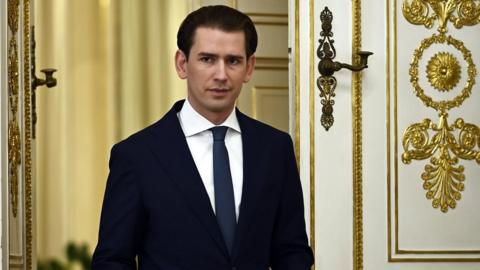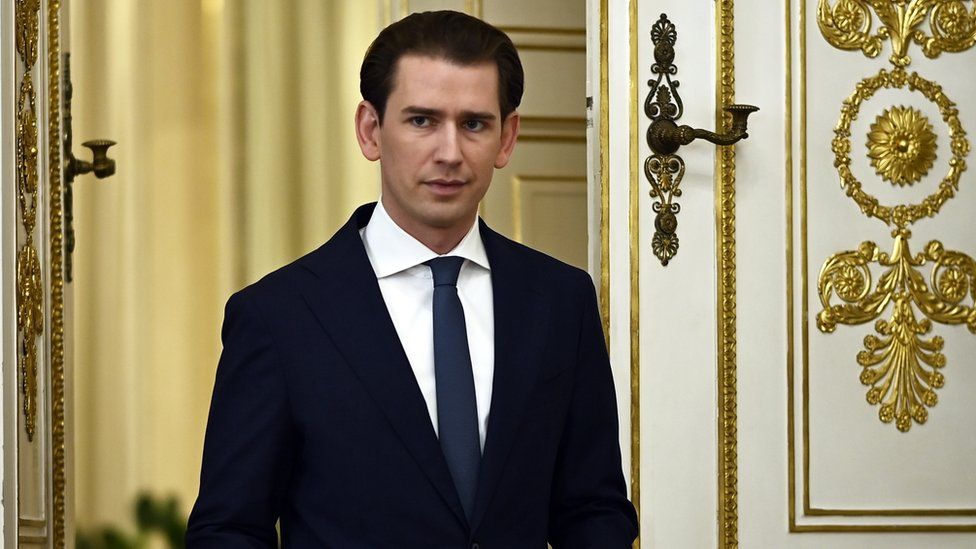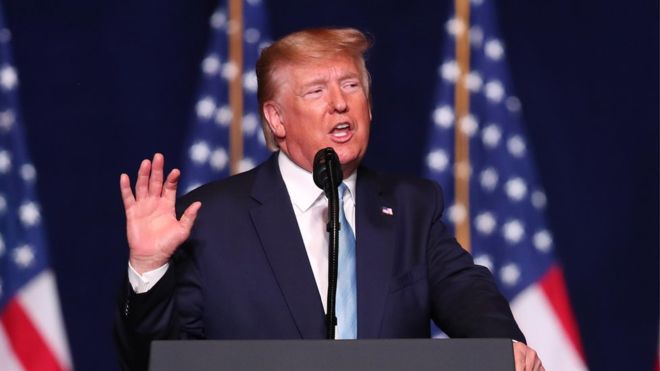Austrian leader resigns amid corruption inquiry

 IMAGE SOURCE,EPA
IMAGE SOURCE,EPAAustria’s Chancellor Sebastian Kurz has stepped down, after pressure triggered by a corruption scandal.
He has proposed Foreign Minister Alexander Schallenberg as his replacement.
Mr Kurz and nine others were placed under investigation after raids at a number of locations linked to his conservative ÖVP People’s Party.
He denies claims he used government money to ensure positive coverage in a tabloid newspaper.
The allegations this week took his coalition government to the brink of collapse after its junior partner, the Greens, said Mr Kurz was no longer fit to be chancellor.
The Greens began talks with opposition parties, who were threatening to bring a vote of no confidence against the chancellor next week.
“What’s required now is stability. To resolve the impasse I want to step aside to prevent chaos,” Mr Kurz said as he announced his resignation.
He said he would remain leader of his party, and continue to sit in parliament.
“First and foremost, however, I will of course use the opportunity to disprove the allegations against me,” he added.
Mr Kurz became leader of the ÖVP in May 2017 and led his party to victory in elections later that year – becoming, at the age of 31, one the world’s youngest ever democratically-elected heads of government.
The corruption allegations relate to the period between 2016 and 2018, when finance ministry funds were suspected to have been used to manipulate opinion polls in favour of the ÖVP.
Mr Kurz, nine other individuals, and three organisations, have been placed under investigation “on suspicion of breach of trust … corruption … and bribery … partly with different levels of involvement,” the Prosecutors’ Office for Economic Affairs and Corruption said in a statement on Wednesday.
Earlier in the day, prosecutors carried out raids at the chancellery, the finance ministry and homes and offices of senior aides to the chancellor.
Mr Kurz has called the allegations against him “baseless”.
He also denies wrongdoing in a separate investigation he was placed under in May over allegations that he made false statements to a parliamentary commission.





